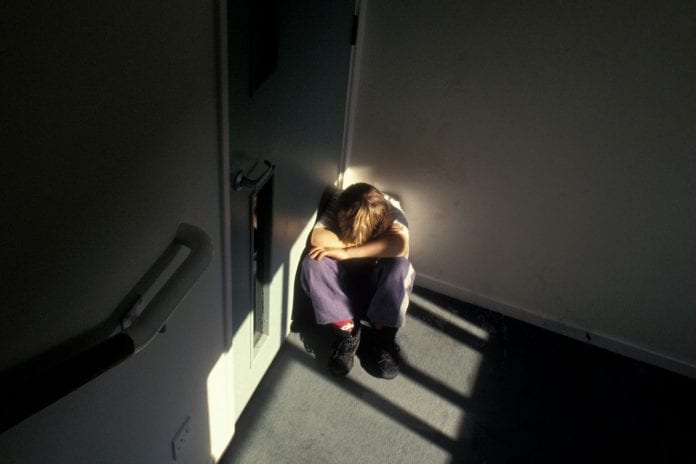- Police-recorded rates of physical abuse offences against adolescents in Wales are three times higher than those against younger children
- NSPCC helpline makes more than 700 referrals to agencies in Wales in the past four months
- NSPCC Cymru calls on Welsh Government to maintain clear focus on children to ensure this generation do not become the lasting victims of coronavirus
A flagship report by the NSPCC has revealed the scale of abuse against adolescents in Wales for the first time, with concerns lockdown put many at even greater risk of harm.
The charity’s ‘How safe are our children? 2020’ report, released today, highlights how adolescents are at increased risk of physical, sexual and online abuse, with rates of police-recorded offences highlighting that compared to younger children adolescents in Wales are:
- Eight times as likely to be groomed online
- Six times as likely to be sexually abused
- Three times as likely to suffer physical abuse
As secondary school children prepare to return to school following months of uncertainty resulting from the pandemic and further compounded by the grading of exam results, NSPCC Cymru is urging Welsh Government not to forget older children in its lockdown recovery planning.
Despite the prevalence of serious abuse against older children in crime statistics, studies have shown the ability of adolescents to look after themselves is often overestimated and there can be a tendency for professionals to focus on the difficult behaviour being presented by a teenager rather than the causes behind it.
The report reveals that 41% of referrals made by the NSPCC helpline to agencies in Wales during July resulted from contacts from adults concerned about how parental behaviour was impacting on young people, including domestic abuse, alcohol and substance misuse and parental mental health.
One member of the public who contacted the NSPCC helpline said: “I am concerned about the children of a family I know. The parents physically fight all the time and the father takes drugs and drinks alcohol and regularly is under the influence. The eldest child, who is 14, is finding it all too much being at home. He spoke to his school about how he felt and they have spoken to the parents but as a result his father has hit him which has left big lumps on his head. I am so worried about him and the younger children.”*
Between the start of April and end of July the charity’s helpline made 721 referrals to agencies in Wales, with concerns including neglect, physical, emotional, and sexual abuse.
As young people return to school, there is likely to be a surge in need for specialist services as for some children the lockdown will have heightened or created new risks of abuse and neglect in the home at a time when access to crucial sources of support will have been limited. School staff will be well placed to identify signs of abuse and traumatic lockdown experiences and help pupils access the necessary support.
To counter the huge impact coronavirus has had on young people in Wales, including adolescents, NSPCC Cymru is calling on the Welsh Government to ensure there is a clear focus on children and young people, the indirect victims of the Covid pandemic, in its recovery planning.
Schools and children’s social services – both social work capacity and specialist services – need to be resourced to cope with a surge in demand for support and specialist services as pupils return to school.
Vivienne Laing, Policy & Public Affairs Manager for NSPCC Cymru, said: “Welsh Government must continue to put children and young people at the heart of its recovery strategy, recognising the negative impact and potential long-term consequences this crisis will have had on children’s learning and development.
“For children who may have suffered abuse, neglect or other traumatic experiences during the lockdown, adults in schools are well placed to recognise the signs and sufficient support needs to be put in place to enable them to confidently provide support and help children and young people to recover.
“The risks of abuse are increased in stressful situations, and we are anticipating a significant rise in referrals from families experiencing domestic abuse during lockdown.
“During lockdown children were increasingly exposed to domestic abuse and we call on the Welsh Government to ensure its recovery plan includes dedicated specialist services for children and young people exposed to domestic abuse in every part of Wales. We want to see children workers in refuge and community services across the country so that families in crisis can access play and therapeutic services.”
Writing in the foreword of the ‘How safe are our children? 2020’, Peter Wanless, CEO of the NSPCC said: “No one has been left unaffected by the uncertainty we are living through. For adolescents, already navigating perhaps the most challenging period of their lives, the impact is likely to be significant and, in some cases, lasting.
“As pupils return to education we need to be prepared to make sure schools, and teachers, children
Report author Holly Bentley, the NSPCC’s Senior Information Specialist, said: “Abuse and neglect can have as devastating an impact on adolescents and it was with this in mind we set out to identify the scale of abuse suffered by older children.
“Bringing this data together for the first time will give professionals a clearer understanding of the specific needs of adolescents which will be invaluable as they respond to the effects of the pandemic.”
The NSPCC’s How Safe 2021 conference ‘Safeguarding Childhood Together’ takes place on 4-5 March. Booking is open via www.nspcc.org.uk/howsafeevent
* “All names and potentially identifying details have been changed to protect the identity of the child or young person. Quotes are created from real helpline contacts but are not necessarily direct quotes.”
Help keep news FREE for our readers
Supporting your local community newspaper/online news outlet is crucial now more than ever. If you believe in independent journalism, then consider making a valuable contribution by making a one-time or monthly donation. We operate in rural areas where providing unbiased news can be challenging. Read More About Supporting The West Wales Chronicle


























